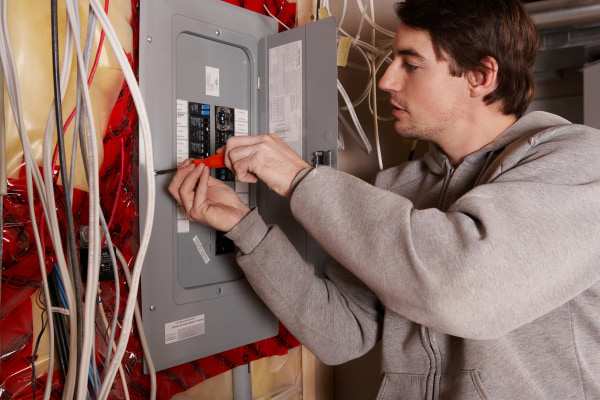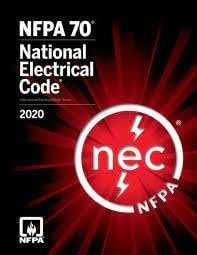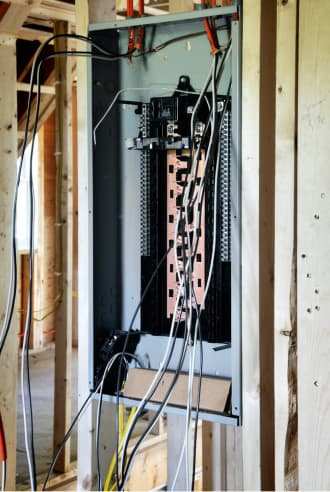
Can A Homeowner Replace An Electrical Panel?
When it comes to home improvement projects, one question that often arises is whether homeowners can replace their electrical panels in North Carolina. This is a crucial query because these types of projects involve a complex electrical system that must adhere to specific safety and legal standards. In this blog, we'll explore the regulations, risks, and considerations surrounding homeowners replacing electrical panels in the state of North Carolina.

North Carolina Electrical Code

The North Carolina Electrical Code is the foundation for electrical regulations in the state. The 2020 State Electrical Code (2020 NEC with State Amendments) was accepted by the Building Code Council on June 8, 2021 and accepted by the Rules Review Commission on October 21, 2021. It outlines the standards and requirements for electrical installations, ensuring that they are safe and reliable. Whether you're a homeowner or a professional, compliance with this code is essential when dealing with electrical systems. It's important to understand that the code applies to all electrical work, including electrical service panel replacements.
In North Carolina, homeowners are permitted to perform electrical wiring in their own homes, as long as they plan to personally reside in the home and have no intention of renting or selling it within one year after completing the electrical installation. A homeowner could hypothetically install a complete electrical system in a single family home as long as they will be living in it for the next 12 months.
Homeowner's Ability to Replace an Electrical Panel
While homeowners are generally allowed to perform minor electrical repairs in their homes, such as wiring an outlet or installing a ceiling fan, the replacement of an entire electrical panel is a significant undertaking. It's essential to recognize the difference between changing circuit breakers and replacing an electrical panel or installing a new electrical panel. Residential electrical panel replacement is a complex job that involves high voltage and poses serious risks, which should be left to trained professionals, even if the homeowner has previous experience with residential electrical work.
Permit and Inspection Requirements
In the state of North Carolina, ensuring that electrical work adheres to strict regulations is a fundamental aspect of maintaining safety and reliability within residential properties. When it comes to making significant changes to your electrical system, such as replacing an electrical panel, homeowners are obliged to follow a set of essential permit and inspection procedures.
Permits: Securing the necessary permits is a crucial initial step in the process. Homeowners planning to undertake substantial electrical projects, including electrical panel replacements, must obtain these permits as a matter of mandatory compliance. The permit application process typically involves submitting detailed plans and descriptions of the proposed work to local authorities for review. It's important to remember that this step isn't merely bureaucratic; it's designed to ensure that the electrical work to be performed meets the stringent safety and quality standards set forth in the North Carolina Electrical Code.
Inspections: After obtaining the requisite permits, the work performed on your electrical system will undergo rigorous inspections by certified professionals. These inspections serve as a safeguard, both for you as the homeowner and for the broader community. The inspectors will thoroughly evaluate the completed work to verify that it not only meets the North Carolina Electrical Code but also complies with overarching safety standards. This meticulous scrutiny is intended to identify and rectify any potential issues or deviations that might pose a risk to your household or others.
The permit and inspection requirements in North Carolina have a broader purpose beyond just adherence to regulations. They are ultimately in place to safeguard the interests of homeowners, their properties, and the general public. By ensuring that electrical work is executed correctly and safely, these measures help prevent electrical hazards, such as fires and electrical problems, which could have severe consequences for both property and life.
Licensing and Qualifications
Professional electricians in North Carolina are required to be licensed and meet specific qualifications. They have undergone training and apprenticeships to develop the skills necessary for safe electrical work. When considering an electrical panel replacement, it's highly recommended to hire a licensed electrician who is well-versed in the North Carolina Electrical Code. This ensures that the work will be done correctly, safely, and in compliance with regulations.
DIY vs. Professional Electrician
Let's weigh the pros and cons of DIY electrical panel replacement versus hiring a professional electrician:
DIY:
- Pros:
- Potential cost savings on labor.
- Sense of accomplishment.
- Cons:
- High risk of electrical hazards and death.
- May not meet code requirements.
- Voided home insurance if something goes wrong.
- Corrections could make this approach more expensive
Professional Electrician:
- Pros:
- Expertise and training.
- Compliance with code and safety standards.
- Reduced risk of electrical accidents.
- Corrections, if any, done by the hired professional
- Cons:
- Higher upfront cost.
- Much lower risk of electrical hazards and death, but never eliminated.
Consequences of Unauthorized Electrical Work
Engaging in unauthorized electrical work can lead to serious consequences in North Carolina. Legal penalties may include fines, the requirement to undo the work, or even criminal charges if it endangers lives or property. Furthermore, improper electrical work can result in electrical fires, injuries, or fatalities, underscoring the importance of adhering to regulations and safety guidelines.

Resources for Homeowners
For homeowners in North Carolina who are considering electrical panel replacement, here are some valuable resources:
- Licensed Electricians: Seek out reputable, licensed electricians who can provide quotes and perform the work professionally and safely.
- Local Building Departments: Contact your local building department to learn about permit requirements and inspection processes.
- North Carolina Electrical Code: Familiarize yourself with the state's electrical code to better understand the standards that must be met.
Should a Homeowner Replace a Breaker Panel?
In conclusion, while homeowners can perform some electrical repairs, replacing an electrical panel in North Carolina is a job best left to licensed professionals. The cost to replace a breaker panel is much less than the trip to the hospital, or worse.
On the other hand, performing electrical panel upgrades can be done under the guidance of a licensed electrician who is familiar with the task.
Adhering to the North Carolina Electrical Code, obtaining the necessary permits, and ensuring the work is inspected will help protect your home and family from potential electrical hazards. Prioritize safety and compliance to ensure a safe and legally sound electrical panel replacement.
Are you in Raleigh, NC, and in need of reliable electrical services? Look no further! MSS Ortiz is your trusted local electrical company, ready to meet all your electrical needs. Don't compromise on safety or quality when it comes to your home's electrical systems. Call us at (919) 382-0832 or contact us online. Let's keep your lights on and your home powered. Reach out now to MSS Ortiz, your Raleigh electrical experts!

